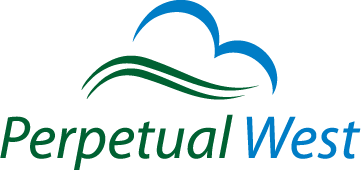Chromebook Series – Part 2: Overview of Chromebook Apps
In Part 1 of this blog series, I took a look at Chromebooks from a macro level and highlighted eight key features that businesses should take note of. In Part 2 of this blog series, it’s time to switch gears and look at the meat and potatoes – the Chromebook apps. Chrome OS is essentially a glorified web browser (albeit a nice one) and requires you to run cloud-based apps. Given the growth in Software-as-a-Service (SaaS), there are apps for most typical business requirements but are they good enough to replace their traditional desktop competition? Let’s take a closer look at the apps that are available for Chromebook users:
Chromebook Series – Part 1: Should Your Business Use Chromebooks?
Google is a cloud pioneer and their technology is built with the cloud in mind. To Google, it makes sense that all roads should lead to the cloud when it comes to a desktop OS as well. One of Google’s latest product offerings is the Google Chromebook and Chrome OS. A Chromebook is essentially an internet dependent, lightweight laptop that runs Chrome OS (i.e. Google’s answer to Windows or Mac OS X on the desktop). Chrome OS represents a dramatic shift in thinking when it comes to desktop operating systems. Chrome OS is basically the same browser that you would use on a PC or Mac but with a few additions that make it a functional OS. Since Chromebooks have just recently been made available to Canadians, I think it’s worth taking a closer look at what they have to offer for small and medium sized businesses. Chromebooks are being adopted by schools across the country but do they make sense for your business? In Part 1 of this series on Chromebooks, I’ll look at Chromebooks from a macro level and in Part 2 we’ll take a closer look at the apps available for them.
Cloud Security and Privacy – Should Canadian Businesses Be Concerned?
Is cloud security and privacy a concern for your business? With recent developments in the news about US government agencies using secret court orders to collect data on specific users from American-based large internet companies (like Google, Apple and Facebook), should Canadians be concerned about the privacy and security of our data that resides in US data centers? Google CEO Larry Page responded quickly to the allegations with a clear and concise blog post. So did Facebook. Now, these internet giants are all requesting a more transparent process so that they are allowed to detail the number of requests made by government agencies. We often get asked by Canadian businesses about cloud security as they are concerned about US government overreach in the name of security and terrorism. In attempt to be as objective as possible on the issue, I wanted to share a few resources that I have come across that address this concern.
What Are The Benefits of Cloud Computing For Small Business Owners? [INFOGRAPHIC]
Cloud computing is being embraced by businesses of all sizes – from small businesses to large corporations. Many small businesses are ‘moving to the cloud’ so that they can take advantage of key benefits including: cost savings, flexibility to work from anywhere, ability to collaborate with colleagues on a document, data security, and improved efficiency.
How Can a Cloud Broker Can Help My Small or Medium Sized Business?
Many small and medium sized businesses (SMB) are using the services of a professional cloud broker to help them navigate the cloud and move their business to the cloud. By definition, a cloud broker is a third party business that acts as an intermediary between the purchaser of a cloud computing service and the sellers of that service. For a typical small or medium sized business, what are the advantages of using a cloud broker?
Read More

